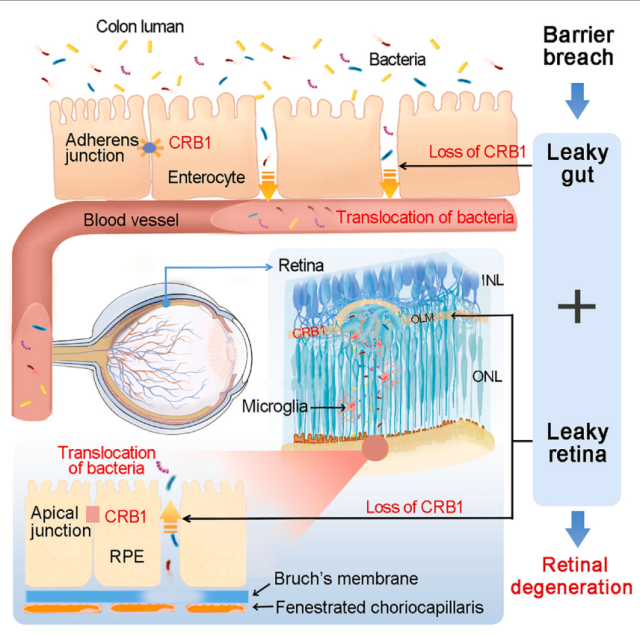Hereditary retinal degenerative diseases pose a significant challenge, often leading to irreversible blindness with limited treatment options. Among these conditions, mutations in the CRB1 gene stand out as common triggers for debilitating conditions, such as Leber congenital amaurosis and retinitis pigmentosa.
After nearly a decade of rigorous research, a collaborative effort led by scientists from the Zhongshan Ophthalmic Center of Sun Yat-sen University and other institutions has achieved breakthrough progress. The research result has been published on Cell.

Their research unveiled a crucial link between CRB1 gene mutations and retinal degeneration, shedding light on the previously unrecognized role of the gut microbiota. The team's findings indicate that microbial invasion of the gut can trigger retinal inflammation and pigment degeneration.
Remarkably, the researchers successfully prevented the onset and progression of ocular diseases by employing two innovative approaches: broad-spectrum antibiotic therapy and reintroduction of functional Crb1 expression in the lower digestive tract.

This research findings challenged the conventional notion that the internal compartment of the eye maintains a sterile environment, which will provide significant insights into the treatment of hereditary retinal degenerative diseases.
Author | Hannah
Editor | Steven, Monica, James
Pictures provided by the Zhongshan Ophthalmic Center of Sun Yat-sen University
















